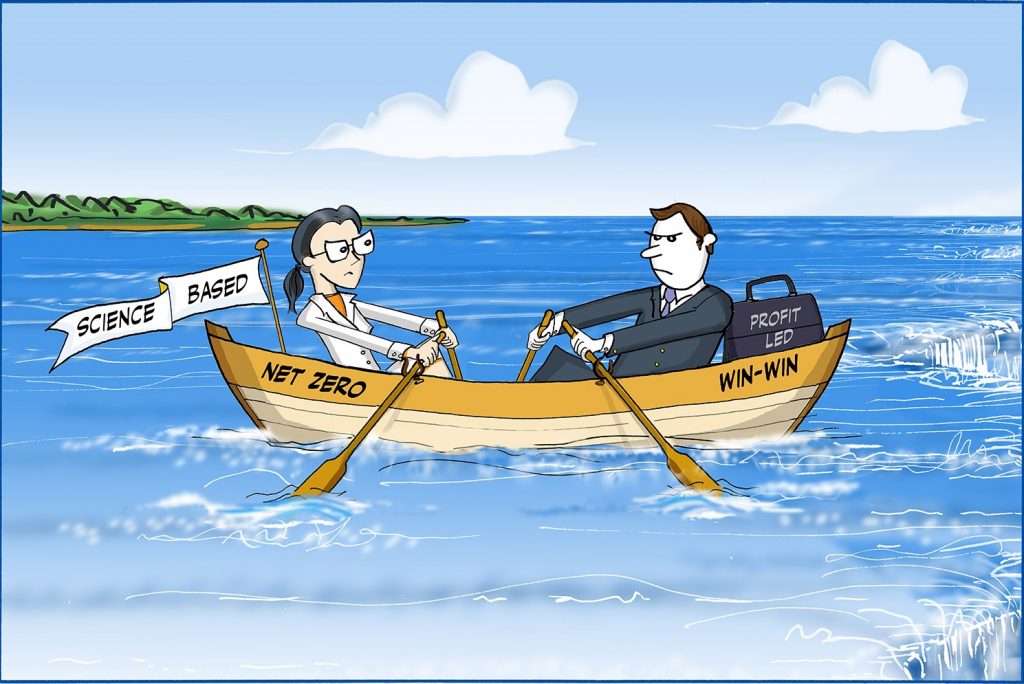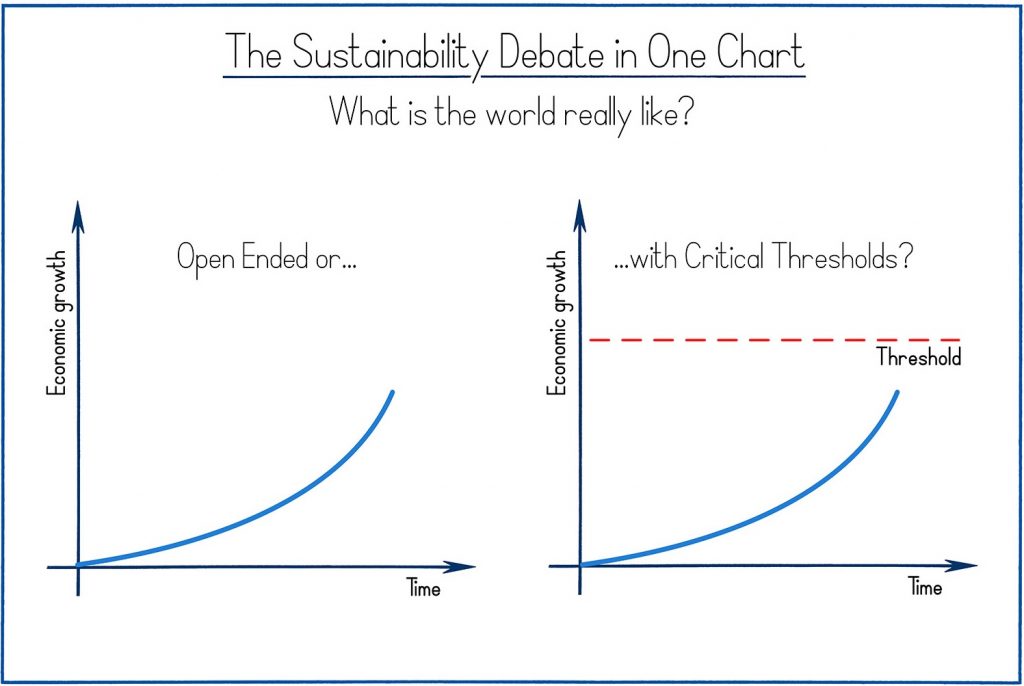
Four decades after sustainability first emerged as a concept, we are witnessing a profoundly important ‘net zero moment’. First gradually, and now suddenly, countries and companies are making ‘net zero’ pledges to reduce carbon emissions in line with the temperature goals of the Paris Agreement. This represents a substantial and welcome upgrade of national and corporate ambitions regarding climate change but poses the obvious challenge. In March, a survey by Standard Chartered found that 64 percent of senior corporate executives do not believe that net zero commitments are commercially viable, contradicting the longstanding ESG narrative that ecological sustainability is a ‘win-win’ – good for profit and planet.
The contradiction reveals that there have all along been two fundamentally different interpretations of ‘sustainability’, whose inconsistency is only now finally surfacing because of the severity of our situation.
The win-win claim of sustainable business has always tacitly depended on the ecological ‘win’ being defined as ‘more sustainable than before’.
In contrast, the net zero imperative emanates from the very different perspective that we need to achieve ‘enough sustainability before it is too late’.
I believe much of the ongoing confusion within the sustainability debate arises from individuals and organizations – and even individuals within the same organization – working to conflicting interpretations of sustainability, without fully realizing. Some regard ecological sustainability as a relative concept by which it is sufficient merely to make progress – to ‘become more sustainable’ – while others view sustainability as an absolute concept that demands we be ‘sustainable enough in time’.
In turn, these markedly different perspectives rest upon individuals’ generally implicit views on whether the world does or does not contain real thresholds and limits whose breach may have severe, even existential, consequences for humankind. In other words, though rarely discussed explicitly, the fundamental clash is between limits-denying and limits-accepting worldviews. (See Figure ).

….
Read more in full 16 page paper here (PDF): “From Win-Win to Net Zero: A Tale of Two Sustainabilities”
Also published in short form by Responsible Investor here.
Illustrations by Matt Tweed.
Leave a Reply